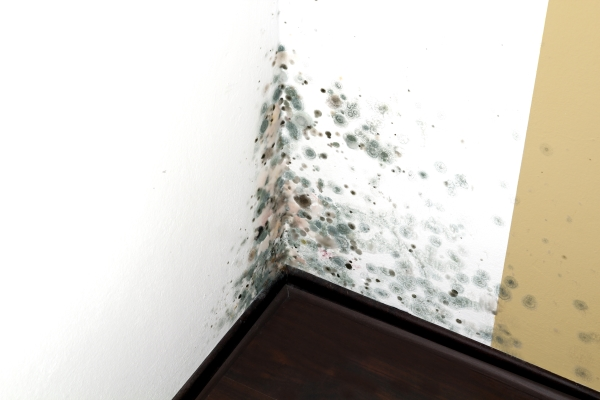
Buying a house with mold requires careful consideration and action. Rainbow Restoration highlights some key steps for prospective homeowners.
|
Looking for a new home can be fun, exciting, and sometimes stressful. But eventually, you’ll find a house that checks all your boxes, and you’re ready to make your purchase. However, during the inspection process, the inspector finds mold. That’s a deal breaker, right? Or is it? The truth is most mold problems can be solved by professional mold remediation. Not only that, the presence of water damage and mold can be an extra bargaining chip when you’re negotiating the sale. After everything is said and done, the mold may get you a better deal on the house.
What Kind of Mold?
Even if your inspector says you have mold, have a sample taken and send it to a laboratory for confirmation. Not only will this give you documentation to use when looking for mold removal services, it will also let you know the kind of mold you have. Since certain types of molds are more toxic than others, this is important information. Common types of molds include:
- Aspergillus—A common mold most frequently found in home air conditioners. Allergenic, but not toxic.
- Cladosporium—Green or black pepper-like mold that grows on the back of toilets, painted surfaces, and fiberglass air ducts. Not toxic, but it can trigger a rash, itchy eyes, or a sore throat in people who have mold allergies.
- Orange Mold—Usually found outdoors where it thrives on decaying plants or moist, rotting wood. Indoors it occasionally grows in high humidity areas like bathtubs and showers. Mostly harmless except for people with compromised immune systems.
- Stachybotrys Chartarum—Commonly called toxic black mold, it produces a mycotoxin which causes sickness in humans and animals. Often the cause of “sick building syndrome.” It thrives in damp areas with a lot of cellulose, such as cardboard or paper items. Black mold can also be present in some high-cellulose foods that have low acidity. In homes, this type of mold typically grows in warm, wet areas such as basements, showers, crawlspaces, and especially on and around windows.
Related Topic: Things to Check Before Buying a House
First Steps
If you or your inspector find mold, your first step is to decide if you still want to purchase the house. Although the type of mold is important, you also want to consider the amount of mold, how long it will take to get rid of it, who will pay for the mold removal, and most importantly, how badly do you want the house. If removing the mold with the help of a professional is relatively easy, then you probably don’t want to pass up a great house that can be made safe and mold-free. However, if you have a pre-disposed sensitivity to mold, or if you think the seller might be unwilling to work with you, then the best option may be to walk away.
Negotiating with the Seller
If you decide to move forward, then it’s time to find out what’s causing the mold to form. Whether it’s poor ventilation, faulty construction, a leaky roof, or landscaping plants that hold too much moisture, negotiate with the seller to have the problem fixed. Once the source of the mold is found and fixed, it’s time to decide how the mold will be removed—and who will pay for it. Although any pre-sale mold clean-up is usually the responsibility of the seller, there are some mortgages—like some FHA and Fannie Mae loans—that allow for mold removal and cleanup. Make sure you check out these options before making a final decision about who pays.
Related Topic: Think You Have Mold? Take These Steps Immediately!
Call Professional Mold Remediation Services
DIY mold removal is usually ineffective and can even be dangerous so, no matter who’s paying for it, you should get the professionals involved as soon as possible. At Rainbow Restoration, we specialize in mold remediation and removal. We make sure everything contaminated by mold is cleaned and sanitized to kill any existing mold, stop the spread of mold, and prevent its return. In cases where moisture has caused structural rot or the material cannot be fully dried, we’ll tear out the moldy areas, and then repair or reconstruct them.
The longer mold damage is left unresolved, the more problems it can cause. So, before you buy a house with a mold problem, insist the seller contact Rainbow Restoration as soon as possible. Call us or request an appointment online and our IICRC-certified technicians will help make your new house move-in ready as soon as possible.
